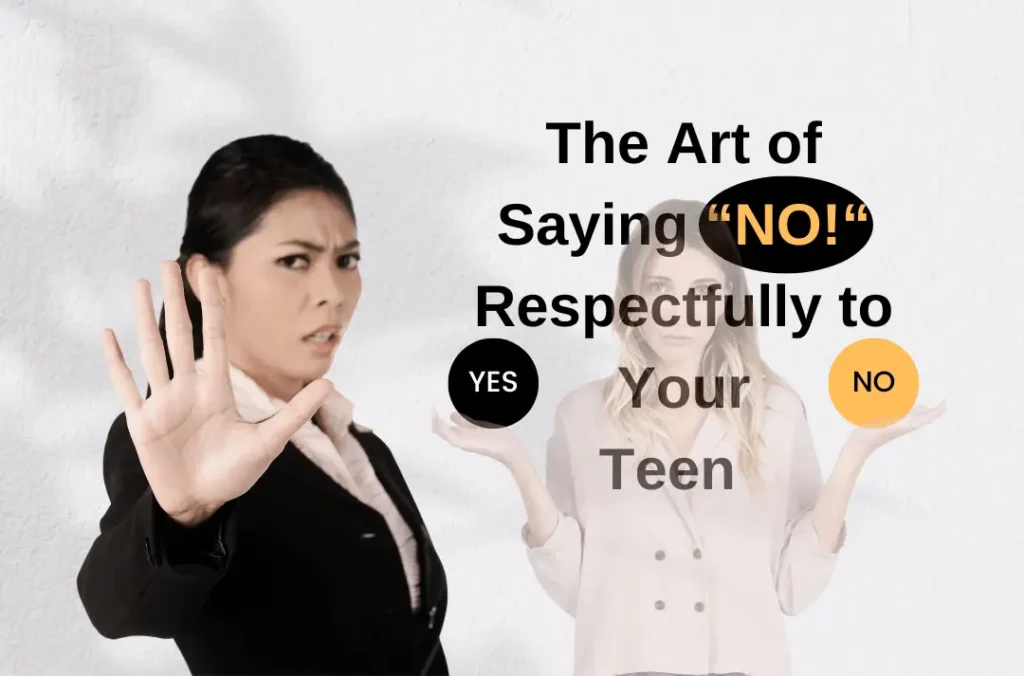



A Guide for Empowering Parents
Kavya: “Mom/Dad, all my friends are going to the party, and I really want to go too. Can I go?”
We all want the best for our teenagers as parents. We try to help them navigate the difficulties of life, support their aspirations, and encourage their personal development. However, there are times when we must say “NO” to our teens. We must refuse our adolescent’s demands or wants. This might be a difficult assignment because we worry that refusing would cause conflict or rebellion. However, being able to say “NO” is an essential part of parenting since it helps establish boundaries, instills values, and teaches valuable important life lessons.
Saying “NO” to teenagers can be particularly delicate. As a parent coach, I recognize the value of building a positive relationship between parents and teens while upholding open lines of communication and enforcing boundaries. In this article, we’ll look at respectful ways parents can say their “NO” to their teens while encouraging understanding and harmony rather than fighting.
You have to have this conversation on the basis of the above-mentioned points. Be patient. Let us understand this with an example:
Parent: “Kavya, I understand that going to the party is essential to you, and I appreciate your honesty in expressing your feelings. However, as your parent, my primary concern is your safety and well-being. The party’s late hours and the location in an unfamiliar area raise some worries for me. I don’t feel confident in approving this event. However, I’m open to discussing any alternate ideas or pursuits you might have.”
Saying “NO”, to our teens can be difficult as parents, but it’s an important part of helping them navigate puberty. We may promote a positive parent-teen relationship based on trust and understanding by treating these circumstances with empathy, open communication, and respect. Saying “NO”, does not make you a bad parent; it is an act of love and protection, guiding your teenager towards making responsible decisions as they transition into adulthood.






🤝 Big Kids’ Mother Life Skill Coach
🌟 Managing Empowering Transforming Emotions
💫Join me to Unlock the Potential within You and Design Your Life You Love!
💕 I educate and encourage stress-out MOTHERS of big kids, preteens, and teenagers to decode challenging situations through a holistic lens so they can find a life they love
Mission:
🎯 My mission by 2033 is to empower 1 million mothers to help themselves find fulfillment, joy, purpose during the big kid stage of motherhood.